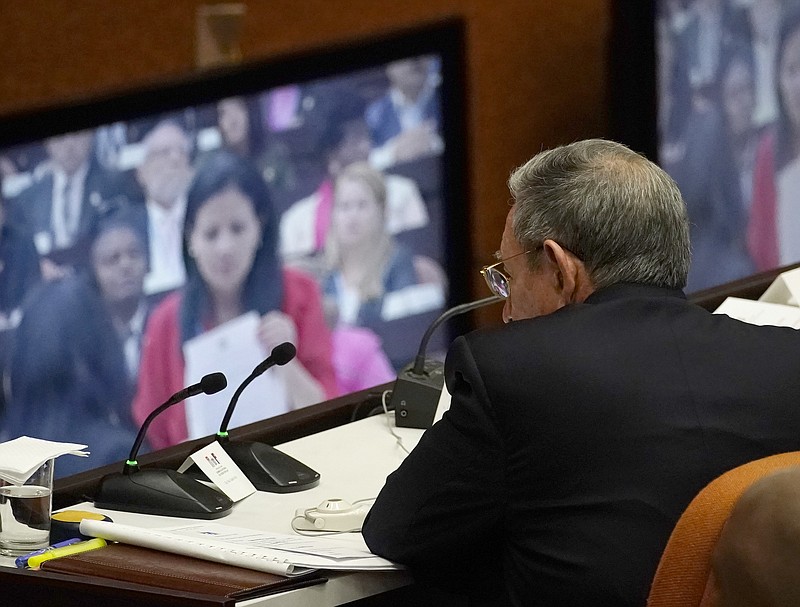HAVANA (AP) - The Cuban government on Wednesday selected 57-year-old First Vice President Miguel Mario Diaz-Canel Bermudez as the sole candidate to succeed President Raul Castro in a transition aimed at ensuring the country's single-party system outlasts the aging revolutionaries who created it.
The certain approval of Diaz-Canel by members of the unfailingly unanimous National Assembly will install someone from outside the Castro family in the country's highest government office for the first time in nearly six decades.
The 86-year-old Castro will remain head of the Communist Party, designated by the constitution as "the superior guiding force of society and the state." As a result, Castro will remain the most powerful person in Cuba for the time being. His departure from the presidency is nonetheless a symbolically charged moment for a country accustomed to 60 years of absolute rule first by revolutionary leader Fidel Castro and, for the last decade, his younger brother.
Facing biological reality but still active and apparently healthy, Raul Castro is stepping down as president in an effort to guarantee new leaders can maintain the government's grip on power in the face of economic stagnation, an aging population and increasing disenchantment among younger generations.
"I like sticking with the ideas of President Fidel Castro because he did a lot for the people of Cuba, but we need rejuvenation, above all in the economy," said Melissa Mederos, a 21-year-old schoolteacher. "Diaz-Canel needs to work hard on the economy, because people need to live a little better."
Most Cubans know their first vice president as an uncharismatic figure who until recently maintained a public profile so low it was virtually nonexistent. That image changed slightly this year as state media placed an increasing spotlight on Diaz-Canel's public appearances, including remarks to the press last month that included his promise to make Cuba's government more responsive to its people.
"We're building a relationship between the government and the people here," he said then after casting a ballot for members of the National Assembly. "The lives of those who will be elected have to be focused on relating to the people, listening to the people, investigating their problems and encouraging debate."
Diaz-Canel gained prominence in central Villa Clara province as the top Communist Party official, a post equivalent to governor. There, people described him as a hard-working, modest-living technocrat dedicated to improving public services. He became higher education minister in 2009 before moving into the vice presidency.
In a video of a Communist Party meeting that inexplicably leaked to the public last year, Diaz-Canel expressed a series of orthodox positions that included somberly pledging to shutter some independent media and labeling some European embassies as outposts of foreign subversion.
But he has also defended academics and bloggers who became targets of hardliners, leading some to describe him a potential advocate for greater openness in a system intolerant of virtually any criticism or dissent. International observers and Cubans alike will be scrutinizing every move he makes after he officially takes office today.
Two years after taking over from his ailing brother in 2006, Castro launched a series of reforms that expanded Cuba's private sector to nearly 600,000 people and allowed citizens greater freedom to travel and access to information. He has failed to fix the generally unproductive and highly subsidized state-run businesses that, along with a Soviet-model bureaucracy, employ three of every four Cubans.

